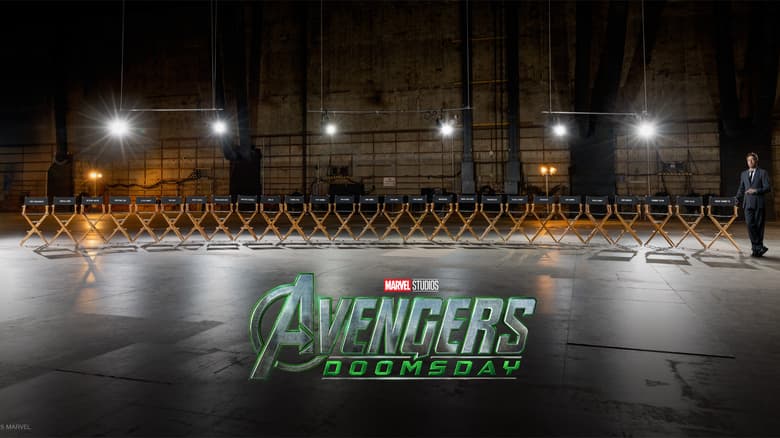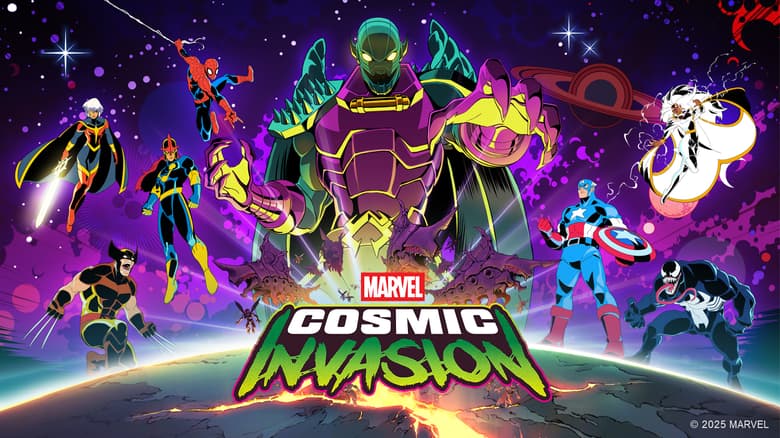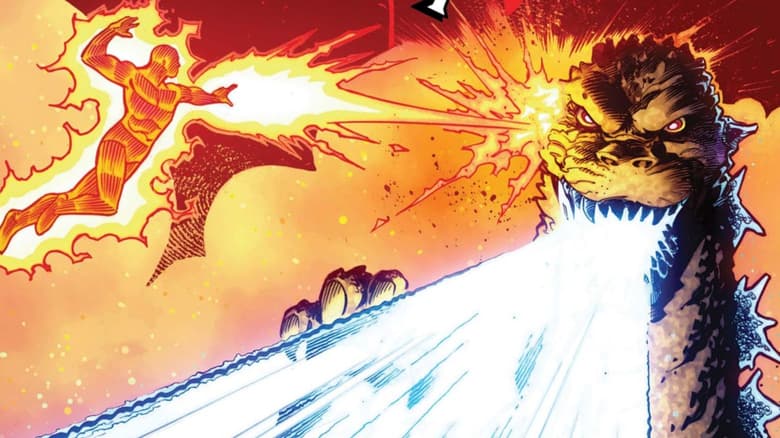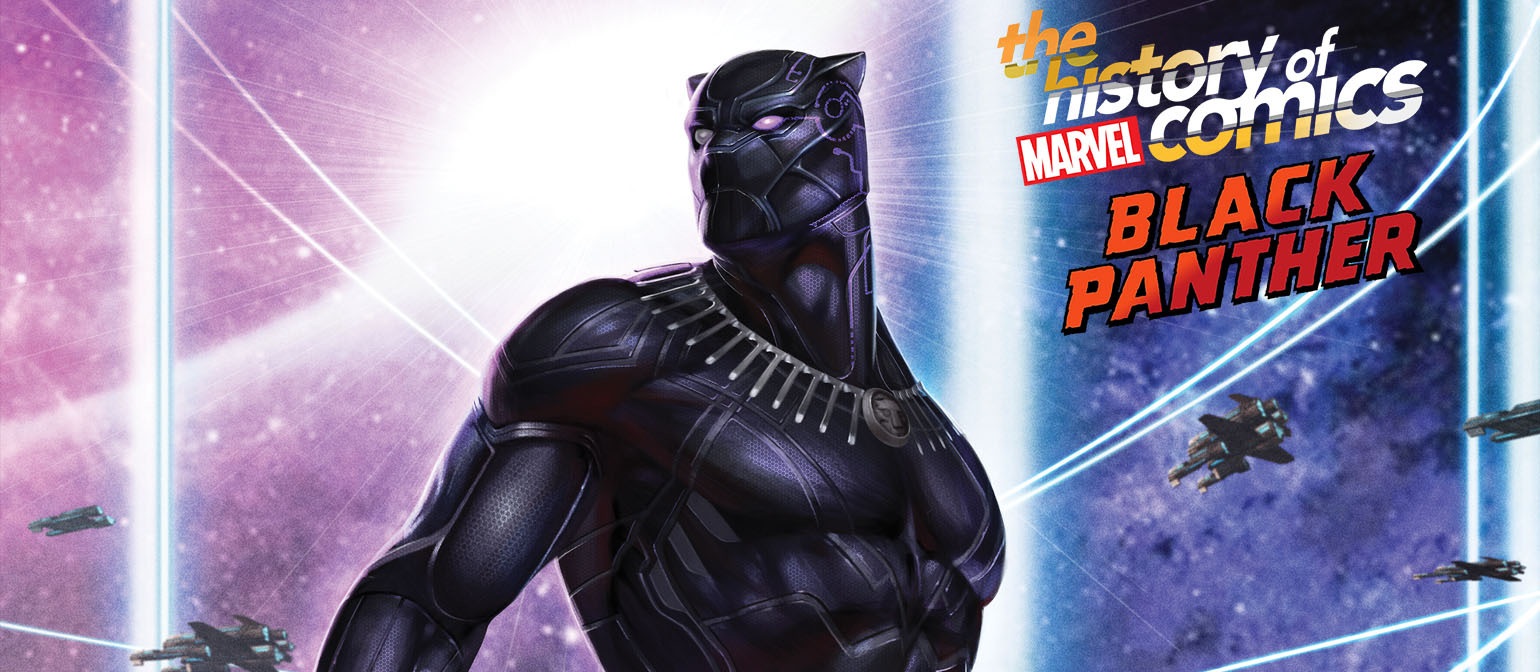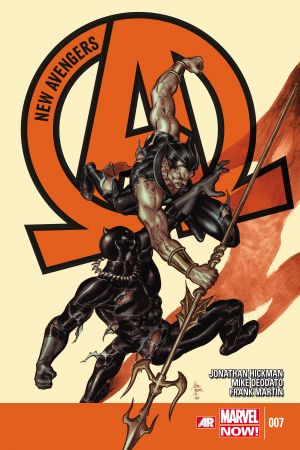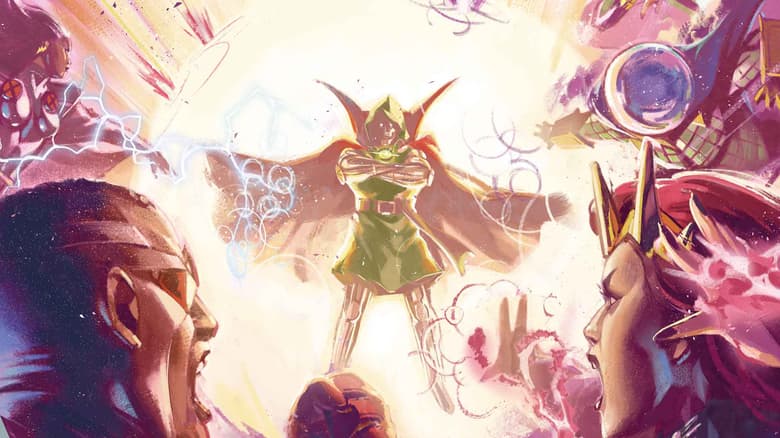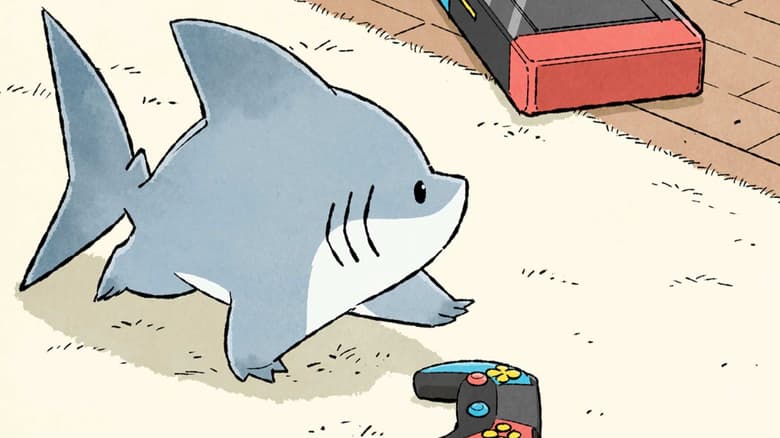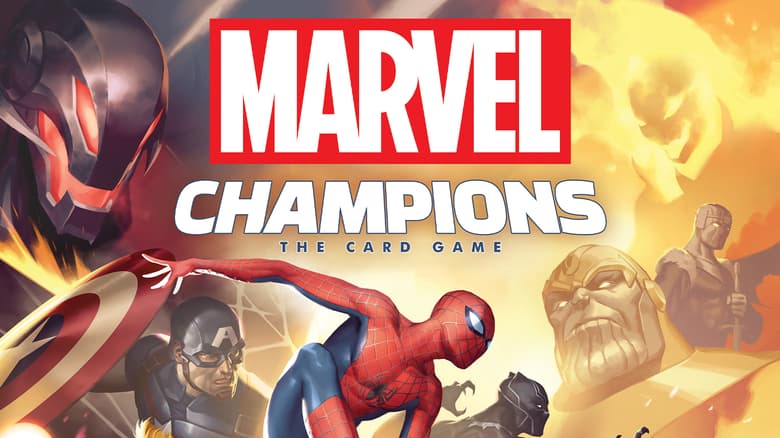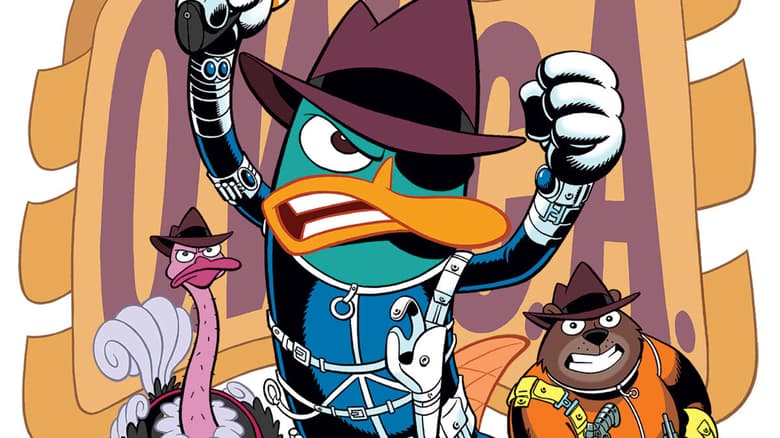A Nation Under Our Feet: ‘The History of Marvel Comics: Black Panther’ Podcast
Creators Ta-Nehisi Coates, Brian Stelfreeze, and Evan Narcisse talk to host Nic Stone about the worldbuilding of Wakanda in the series’ fifth episode.
In the fifth episode of acclaimed podcast series The History of Marvel Comics: Black Panther, creators Ta-Nehisi Coates, Brian Stelfreeze, Evan Narcisse, and Senior Editor Wil Moss cover their influential comic runs with host Nic Stone: BLACK PANTHER (2016) and 2018, and Narcisse’s RISE OF THE BLACK PANTHER (2018), a revamped origin that expands Wakanda’s mythos
This six episode documentary podcast is hosted by New York Times best-selling author Stone, who explores the comic book origins of the Black Panther through conversations with the creators who shaped T’Challa’s journey, celebrating the innately Afro-Futuristic world of Wakanda, while analyzing the larger impact of the character. Both new and lifelong fans will get a behind-the-scenes look in a definitive tell-all of how T’Challa came to be Black Panther, and how he and Wakanda have evolved since.
Grab our top highlights from the fifth episode, then read the companion comics on Marvel Unlimited!
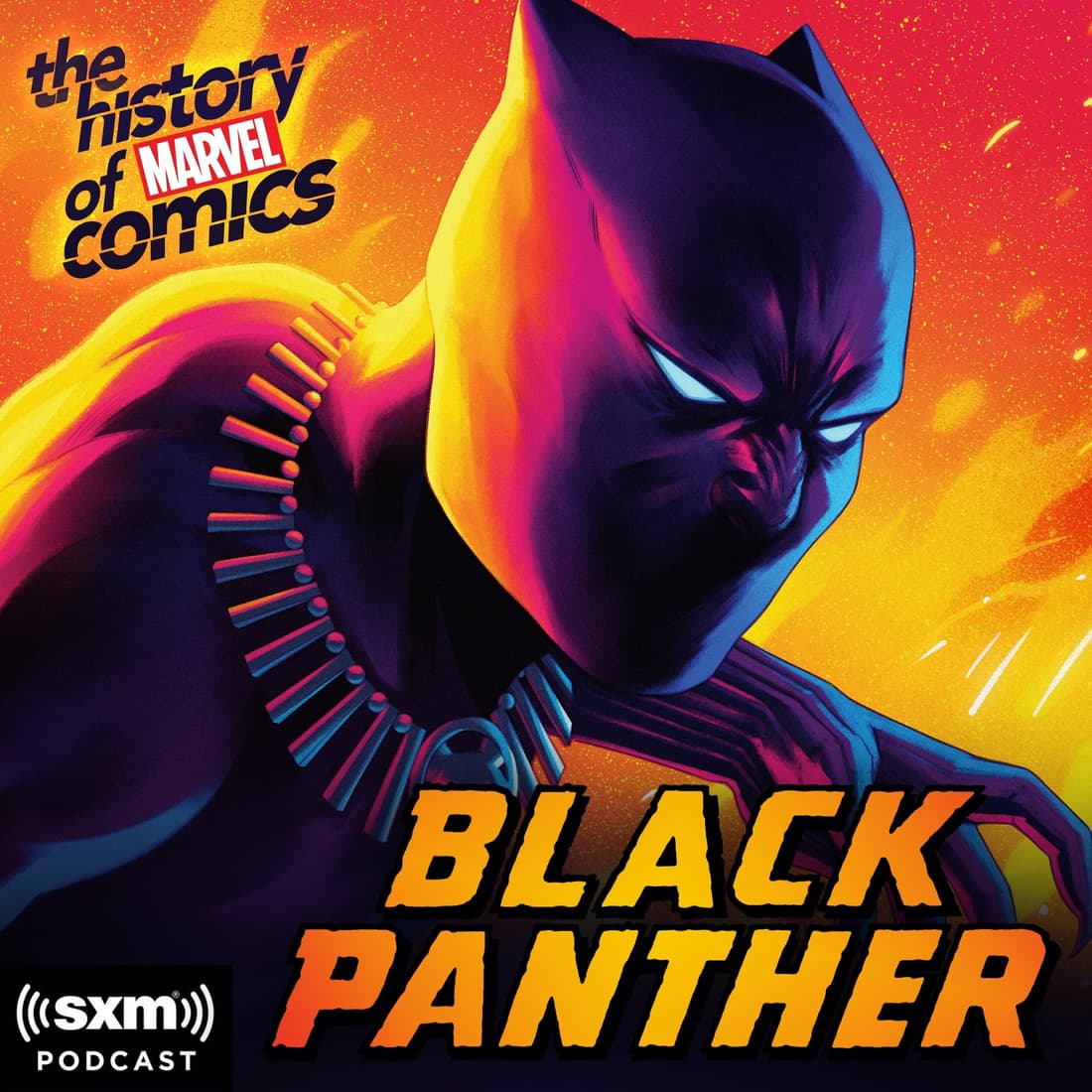
ON TA-NEHISI COATES PICKING UP THE REIGN:
TA-NEHISI COATES: I read a ton of Priest. I read a ton of Reginald Hudlin. Probably my biggest influence was [Jonathan] Hickman. Because he was writing an Avengers book, where T'Challa was almost the protagonist. So I spent a lot of time dealing with his T'Challa and thinking about that.
NIC STONE: Still though, learning how to write for a visual medium like comics can be a massive learning curve.
TA-NEHISI COATES: It was tough. It was tough to learn to tell stories through images. And that was one of the big, big challenges. There's no guarantee that just because you've had success elsewhere, you were going to have success in comics.
NIC STONE: That’s where the artist comes in. Wil Moss, Ta-Nehisi's editor, knew there'd be a bit of an uphill climb, so he wanted to pair Ta-Nehisi with a comic veteran. Combinations breed success after all!
WIL MOSS: Brian Stelfreeze is a master. An artist who happens to draw comic books. So when it came time to casting BLACK PANTHER, I just thought the dream artist for this would be Brian. Somebody who can come in and do something that just totally reinvigorates Black Panther and Wakanda. And so that was one thing that we had in mind when we had Ta-Nehisi come on, who hadn't written comics before. We knew that would be a benefit to have somebody like Brian, who was such a skilled storyteller on his own.
ON WAKANDA’S POLITICAL SHIFT IN THE 2016 RUN:
TA-NEHISI COATES: You know, when you think about monarchy, it’s a nation of people who are underfoot. A nation of people who don't necessarily decide what direction their government takes. And when I read about [T’Challa], he was always leaving Wakanda. He was always going somewhere else. Like that was a constant, constant thing. He went away for college. He was going away to be an adventurer. All of this. And part of the rebellion, and even before that, part of his beef with Shuri was the fact that he hadn't really been around, you know?
NIC STONE: Basically, Wakanda’s mess is on blast for everyone to see. Starting with the Dora Milaje.
TA-NEHISI COATES: I always thought the place of the Dora Milaje were very interesting in Wakanda. And I thought it was interesting that in this advanced society, you had this model of women as bodyguards, and just how they had been attired and everything. And I was just very interested in their own lives. I was interested in how they felt.
NIC STONE: In Coates' run, two Dora, Ayo and Aneka, question their loyalty to the throne after Aneka is taken into custody for killing a village chief. This is a guy whose violence against women went unchecked in T’Challa’s absence. Incidents like these cause Ayo, Aneka, and several other Dora to leave the order, become Midnight Angels, and start the “No One” faction. No One is short for No One Man, which refers to their gripe with the monarchy having all deciding power in Wakanda.
WIL MOSS: I love how [Ta-Nehisi] introduced Ayo and Aneka. Them deciding on their own what it meant to serve Wakanda. And what the obligation was to T'Challa, and to the throne, and to themselves, and to their community. “A Nation Under Our Feet” is just a great story that has a lot of meat on the bones in terms of stuff to think about. In terms of how societies run, in terms of what monarchies are. But it managed to also be this really exciting action story.
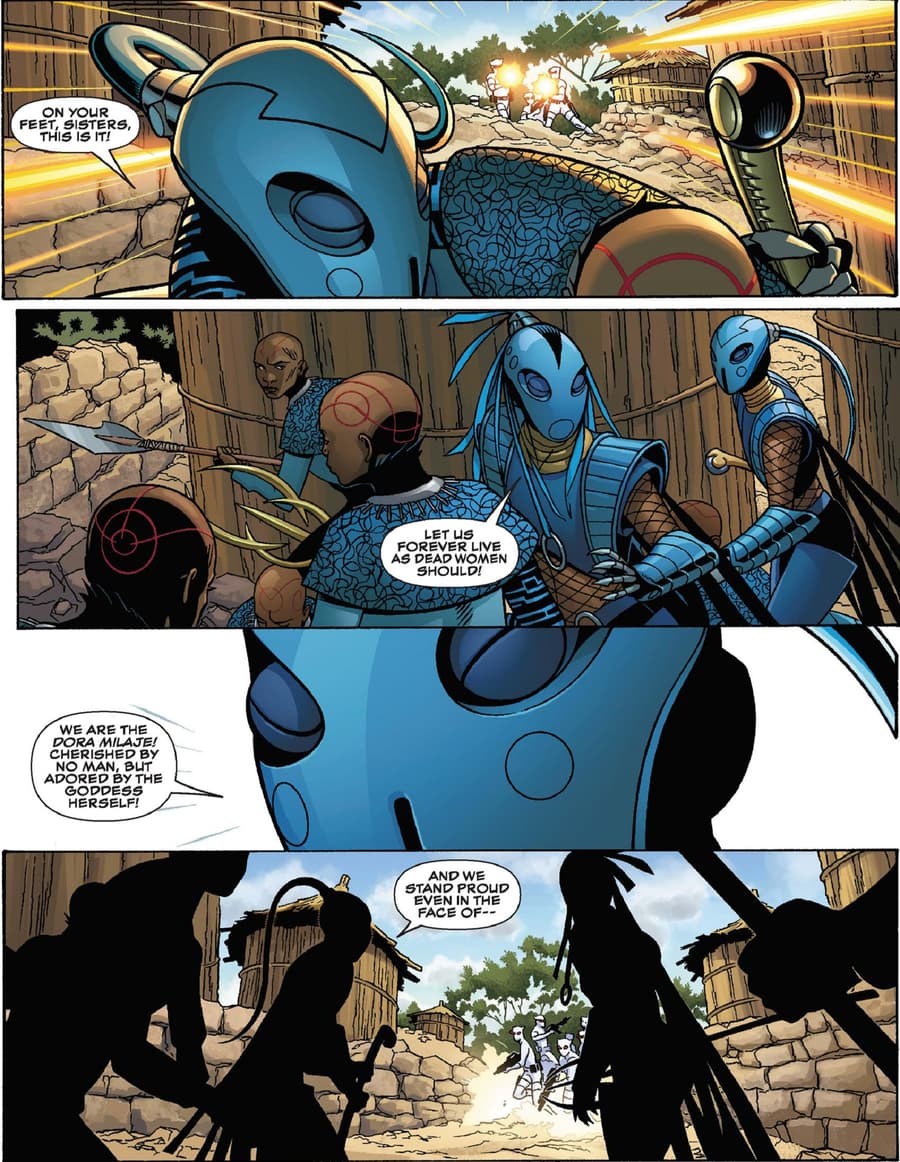
ON THE WORKINGS OF WAKANDAN TECH:
BRIAN STELFREEZE: At one point, Ta-Nehisi said, “Hey man, I don't know tech.” He's just like—“I don't do all that stuff. Here's my lane.” And of course, I kind of went, “Well, I love tech. I don't do politics.” So he was just like, well, how does the technology of Wakanda work? And I did this sort of thing on the evolution of technology in Wakanda. You know, I've got a bunch of buddies that work at Texas A&M and MIT, and I was talking to them about, “OK, how does vibranium work?” And that's when I kind of came across the idea of, rather than vibranium being this thing that absorbs kinetic energy, wouldn't it be better if it was a battery that could absorb one form of energy and return another.
And I told Ta-Nehisi that you can punch it. But then it can be converted to electricity. And then you can redistribute it as kinetic energy. And Ta-Nehisi said, “But what if he redistributed all at once, so the whole ‘Panther pulse’ is kind of going.” So it was really cool that here's this thing that I came up with. And then this creative genius comes in and says, well, here's something else that you didn't think about that you could do with this technology.”
NIC STONE: As we know, vibranium is one of the strongest resources in the Marvel Universe but Brian wanted to give more meaning to the celestial metal. It’s not just a power source or a money magnet, it’s actually a way to bond Wakandans.
BRIAN STELFREEZE: It was one of the things that I thought was important, especially when you consider the African diaspora. I thought it was a great metaphor for us to say that vibranium wasn't just this rock in Wakanda. But there's vibranium in the atmosphere. There's vibranium in the soil. There's vibranium in the plants. And every time someone from Wakanda leaves Wakanda, just like we all have copper and iron in our blood, Wakandans have vibranium in their blood. So that connects them to the mother, that vibranium that's always there. And it really kind of, I think, personifies this connection to each other that all Africans feel, and this connection to the mother, that no matter how far the diaspora spreads, we're still all connected in some way.
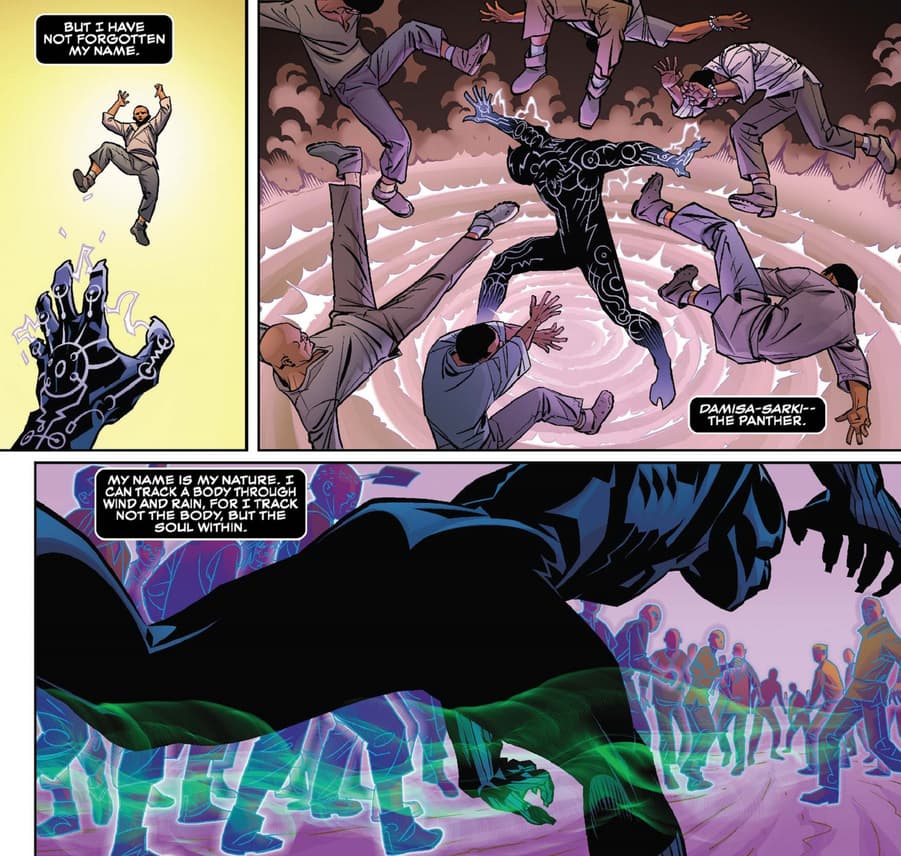
ON BLACK PANTHER THE SCIENTIST:
EVAN NARCISSE: One of the thematic concerns of Ta-Nehisi's run that I wanted to pick up on was that T'Challa's wants that are in conflict with his responsibility as king. And this is something that precedes Ta-Nehisi, but he did make it a major concern during his run.
So the fact that he loves science and wants to explore, and has a wanderlust powered by those desires that pulls him out of Wakanda. In RISE OF THE BLACK PANTHER, I wanted to show like, OK, what is it that fuels that in him. And also his family-- you know, Ramonda was such an important part of Ta-Nehisi's run, but she's not his birth mother. She did raise him.
But in the continuity, there is this character of N'Yami who is his biological mother. And the older stories always said that she died during childbirth, right? And I want to explore who she was. And part of my thinking behind that was we know who T'Chaka was. We've seen him in a lot of the older stories. He's a king, a strategist, somebody who managed to keep Wakanda safe and hidden during his reign. And we know that he died tragically. So we know what the kind of personality traits that T'Challa inherits from him, but I was like, well, we've never seen T'Chaka as a scientist. We've never seen him as the dude in the lab. Where does T'Challa get that proclivity from? And I drew from my own life when I was thinking about that, because my daughter loves to read. And I know she loves to read because of me. And I was like, well, what if T'Challa got his love of science from his mom, who was really a scientist?
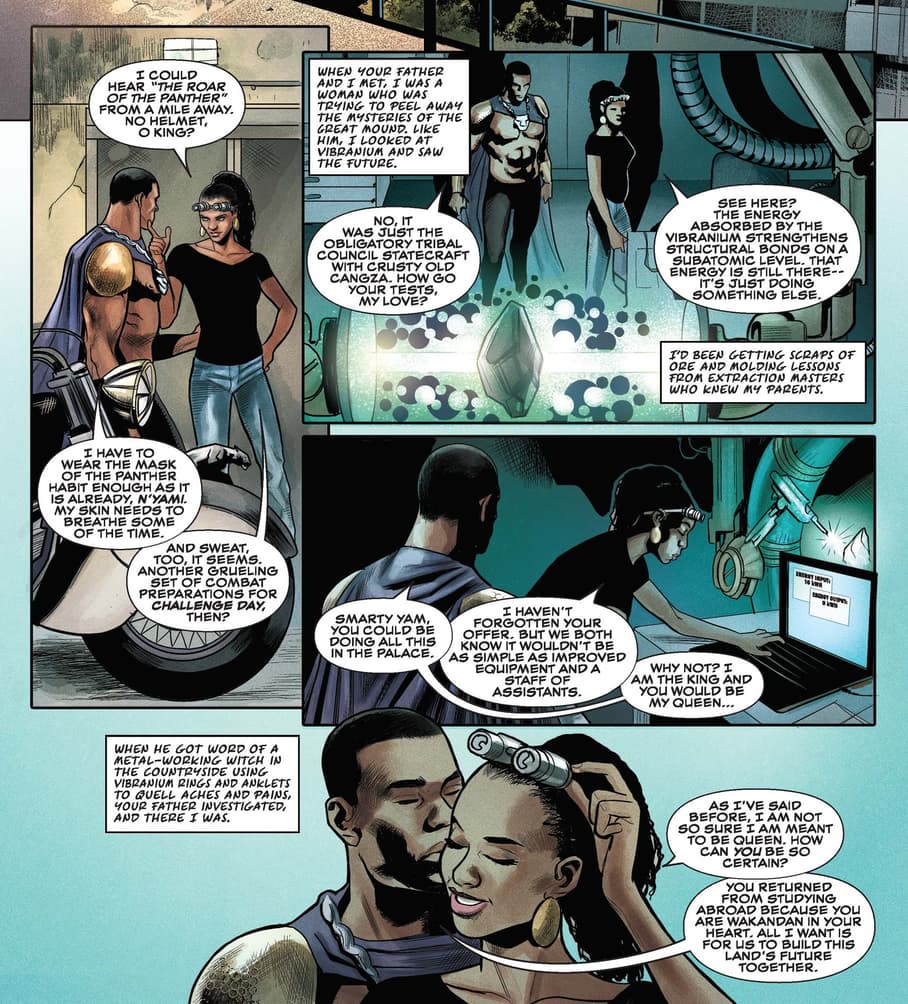
The History of Marvel Comics: Black Panther brings writers, artists, and historians together to share a story that only Marvel can tell. The show features exclusive interviews with notable talent including John Ridley, Joe Quesada, Christopher Priest and more.
The series will initially be available exclusively on the SXM App and Marvel Podcasts Unlimited on Apple Podcasts. Episodes will be widely available one week later on Pandora, Stitcher, and all major podcast platforms in the U.S. Learn more at siriusxm.com/blackpanther.
The Hype Box
Can’t-miss news and updates from across the Marvel Universe!
